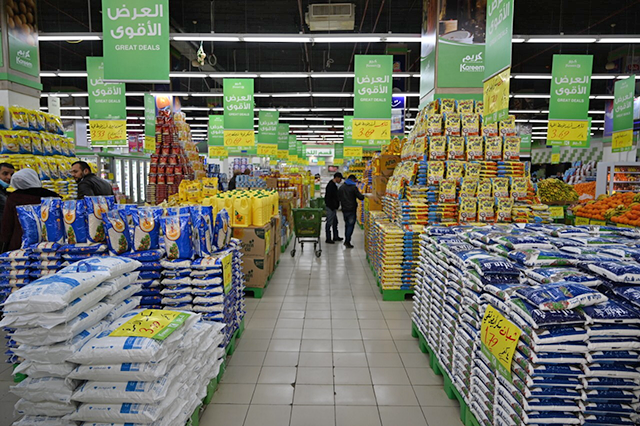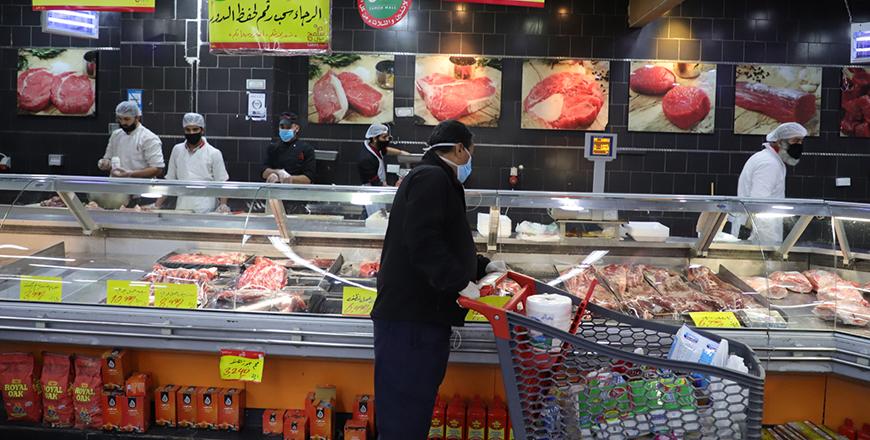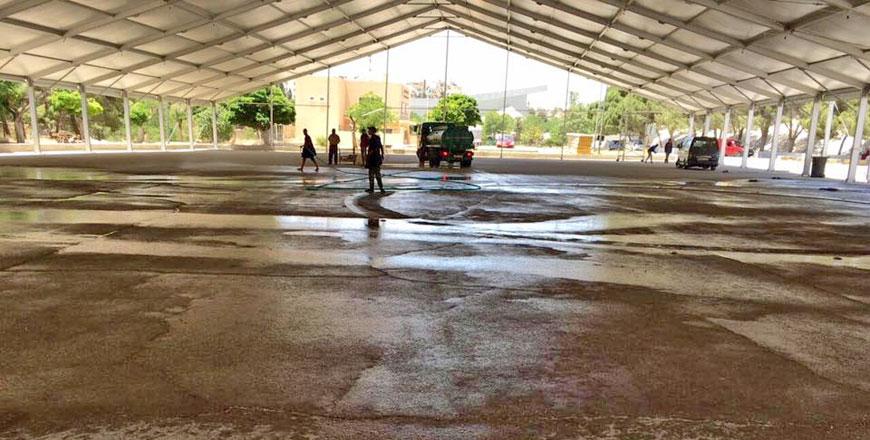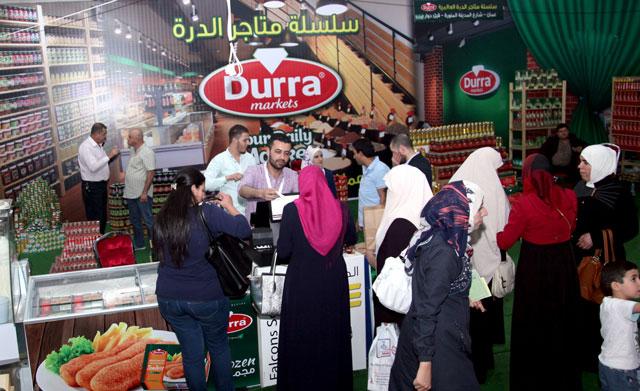You are here
Opening of hypermarkets for direct shopping draws mixed reactions
By Maram Kayed - Apr 14,2020 - Last updated at Apr 14,2020

The government’s decision to open supermarkets and grocery stores in malls for citizens to shop directly has been met with mixed reactions (Photo by Amjad Ghsoun)
AMMAN — As some people expressed relief that the government allowed hypermarkets, supermarkets and grocery stores in malls to open their doors for direct shopping, others showed frustration following the recent step.
On Monday morning, people were allowed to shop directly from groceries and markets that exceed an area of 200 square metres, most of which are located in malls.
Minister of Industry, Trade and Supply Tareq Hammouri said in a press statement on Sunday that the decision came with the aim of “enabling individuals to secure their needs of food supplies from wider options while reducing congestion at shops that are currently operating.”
He added that this also comes as “part of preparations for the blessed month of Ramadan, which usually witnesses an increase in demand for various food commodities”.
The majority of people welcomed the decision, but those who live in remote areas were frustrated with the fact that they were still required to reach those stores by foot.
Pictures of social distancing practices and of people wearing protective masks and gloves circulated social media platforms on Monday, when the stores were opened for the first time.
“Finally! [Although] I live right next to Carrefour, Khalda branch, I was unable to buy my needs from it as their delivery times were all booked and direct buying was banned,” said Hala Daoud, a mother of three, in a Facebook comment.
However, not all citizens had Daoud’s fortunate circumstances.
“This [the decision of direct shopping] does me no good. I live in a remote area in Yajouz and the nearest hypermarket needs an hour of walking,” said Abu Monther Hijazi, a resident of Amman, on Facebook.
“We would really love it if we would be allowed to use our cars to get to these hypermarkets, as the small shops next to us do not have all our needs,” he added.
Head of the General Association for Foodstuffs Merchants of Jordan Khalil Haj Tawfiq said that reopening of such outlets, which amount to around 500 across the Kingdom, will “make it easier for people to shop for their food and basic commodities”.
He also said that the association is still encouraging people to buy commodities via home delivery services to reduce movement and ensure their safety.
Haj Tawfiq’s recommendation seemed to resonate with some people, who said that even though malls were reopening, they “did not want to risk going to a potential gathering place,” as put by Rama Buzan, an engineering student, on Twitter.
Buzan said in a tweet that she was “afraid that people would not practise social distancing and the situation would end up like the initial bread-distributing process”.
Hammouri, however, noted that according to the decision, these stores are “only allowed to work if shopping is organised in a way that only one shopper is present per 40 square metres”.
Hammouri explained, “for example, if the area of the shop is 400 square metres, only 10 people are allowed to shop at the same time”.
The minister also highlighted that the shops will be required to adhere to the necessary procedures to ensure public safety, which includes protecting the staff, maintaining shopping spaces and implementing sterilisation operations.
“These stores must also pledge to continue home delivery services through electronic sales from six in the morning until six in the evening so that they constitute 20 per cent of the total sales at the time of opening, 25 per cent within a week of opening and 35 per cent within a month of opening,” he added.
Related Articles
AMMAN — Supermarkets and grocery stores in malls opened their doors on Monday morning for citizens to shop directly.Head of the General Asso
AMMAN — Consumers will have the chance to buy and taste products from around 150 Jordanian companies expected to take part in the Jordan Foo
AMMAN — The Jordan Food Exhibition 2016 concluded late Sunday after receiving some 75,000 visitors, the Foodstuff Traders Association (FTA)


















